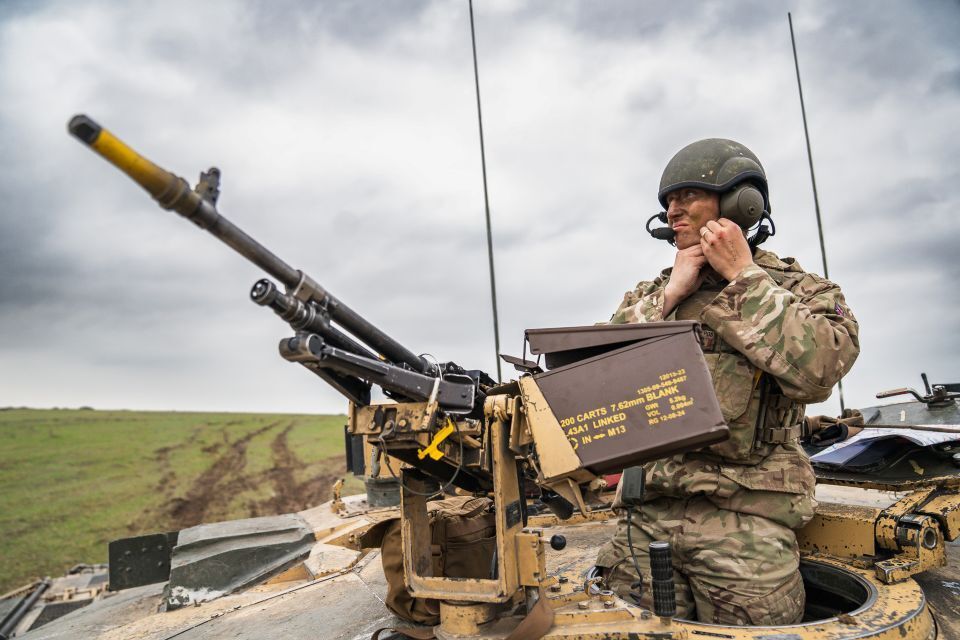Scanning horizons for cooperative missiles

Image courtesy DASA
This Themed Competition aims to identify and develop novel technologies that could be exploited in the development of a new category of missile – cooperative missiles.
Cooperative missiles can communicate with each other, share situational awareness and organise themselves to ‘work together’ efficiently to achieve a common objective. The aim of the work is to investigate how inter-missile communication and cooperative behaviours can be technically achieved to solve UK military challenges.
UK defence systems enabled by AI, including missiles, will always be subject to context appropriate human involvement. For this competition, we are only interested in technologies that could enable cooperation between missiles.
This themed competition focuses on the following challenge areas:
Challenge 1: Distributed target detection and identification
Challenge 2: Data processing onboard and between missiles
Challenge 3: Enhanced navigation through cooperation
Challenge 4: Application of Artificial Intelligence (AI)
Key dates and funding
Total funding available for Phase 1 is up to £800,000 (ex VAT) and is expected to fund multiple proposals.
The deadline to submit a proposal is midday 2nd August 2022.
The development of cooperative missiles for future UK missile systems is a novel and key challenge that UK defence is seeking to solve.
At the moment, missile development seeks to overmatch adversary capabilities by improving the performance of individual missiles. For example, through use of more sophisticated seekers or navigation systems.
However, through the cooperative missile approach, overmatch can be achieved through leveraging networked technologies. This approach is potentially disruptive because the technologies and sub-systems used in a cooperative missile system will be less complex than current designs, while offering greater performance when working together.
This capability is important because the operating environment for UK missile systems is growing increasingly complex. For example, potential targets are often concealed and are likely to be surrounded by buildings, trees and vegetation, which can make identification and navigation challenging. Cooperative missiles will also be beneficial in environments where Global Navigation Satellite Services (GNSS) is degraded.
Generation-after-next cooperative missiles: Challenge areas
Submitted proposals should choose to target one or all of the below challenge areas.
Challenge 1: Distributed target detection and identification
This challenge area seeks novel ways to detect, recognise and identify intended targets using missile sensors distributed over a cooperative group. For example:
- combining sensor data to build a shared image of the target area, with multiple missiles potentially approaching the target from different directions. Increasing detection and identification range through use of multiple, low-cost sensors
- improving the accuracy of target tracking in a complex scene by combining data from multiple sources
- approaches to the above with homogenous and/ or heterogeneous arrays of sensors
Challenge 2: Data processing onboard and between missiles
This challenge area seeks innovations to process large quantities of data across cooperative missile networks for particular missions. For example:
- distributed processing in a missile environment
- distributed database systems within a cooperative missile network
- edge processing - this is an alternative and complimentary technique to analyse and process strong data at the point of generation
- transmission of data within a limited bandwidth cooperative missile network
Challenge 3: Enhanced navigation through cooperation
This challenge area seeks to understand how novel alternative navigation (AltNav) technologies and distributed navigation sensors can be used. For example:
- use of multiple low cost Inertial Measurement Units (IMUs) across the cooperative missile network to improve group navigation
- use of multiple GNSS feeds across the cooperative missile network when some are jammed or degraded to improve group navigation
- use of geolocation using diverse technologies that are distributed across the missile network
- synchronisation of timing information within the cooperative missile network
Challenge 4: Application of Artificial Intelligence
This general challenge area seeks to understand how advances in AI could be exploited in cooperative missile systems. For example:
- improving the robustness of limited bandwidth communications between the cooperative missile network
- optimising the searching of a scene across the distributed cooperative missile network
- target detection in the presence of obscurance (e.g. smoke or camouflage systems) across a distributed cooperative missile network
Want to learn more about these challenge areas? Read the full competition document here.
Webinars and online events
Competition Webinar: 20th June 2022
This webinar will provide more information on the challenge areas and how to submit a proposal. There will be an opportunity to ask questions. If you would like to get involved, please register on the Eventbrite page.
Register now.
Submit a proposal
Do you have a solution or novel approach that may help our ability to develop cooperative missile technologies? Submit an idea and help DASA and Dstl exploit cooperative missiles that can communicate with each other to complete a shared mission.
Read the full competition document to learn more and submit a proposal.











